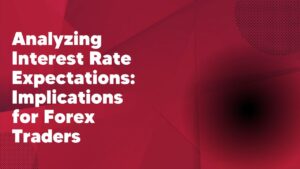Forex, also known as foreign exchange, is a global decentralized market where the trading of currencies takes place. Forex brokers play a crucial role in facilitating these transactions. They act as intermediaries between traders and the market, providing a platform for buying and selling currencies. Understanding the role of forex brokers is essential for anyone interested in participating in the forex market. These brokers not only execute trades on behalf of their clients but also provide valuable market insights, analysis, and educational resources. They serve as a bridge between individual traders and the vast forex market, offering access to various currency pairs and financial instruments. As the forex market operates 24/7 and involves significant amounts of money, working with a reliable and reputable forex broker is crucial for successful trading. In this article, we will explore the role of forex brokers and the services they offer to help traders navigate this complex market.
What is a Forex Broker?
A Forex broker is a financial institution or an individual that facilitates trading in the foreign exchange market. They act as a middleman between traders and the market, providing them with access to various currency pairs and allowing them to buy and sell currencies. Forex brokers offer a platform or trading software that allows traders to place their orders and execute trades. They also provide services such as market analysis, educational resources, and customer support. Forex brokers earn their revenue through spreads, which is the difference between the buy and sell price of a currency pair. Choosing a reliable and reputable Forex broker is crucial for traders, as it ensures fair trading conditions and protects their investments. Traders should consider factors such as regulatory oversight, trading platforms, available assets, customer support, and competitive spreads when selecting a Forex broker. Additionally, it is important to verify if the broker provides a secure trading environment and offers proper risk management tools to help traders manage their positions effectively. Overall, a Forex broker plays an essential role in facilitating Forex trading by offering a platform for traders to access the global foreign exchange market and execute their trades efficiently.
Importance of Forex Brokers
Forex brokers play a crucial role in the forex industry as they provide traders with access to the global forex market. Without brokers, individual traders would not be able to participate in forex trading, as it is not possible for retail traders to directly access the interbank market. Forex brokers act as intermediaries between traders and liquidity providers, allowing them to buy and sell currencies. They offer various trading platforms, tools, and resources that help traders make informed decisions and execute trades. Additionally, forex brokers provide leverage, which allows traders to control larger positions than their initial investment. This can amplify both profits and losses, making it essential for traders to choose reputable brokers that offer fair and transparent trading conditions. Selecting the right forex broker requires careful consideration of factors such as regulation, customer support, trading fees, and available trading instruments. Ultimately, the choice of a reliable and trustworthy forex broker is crucial for a trader’s success in the forex market.
Choosing the Right Forex Broker
Choosing the right Forex broker is crucial for any trader looking to enter the dynamic world of foreign exchange. With so many options available, it can be overwhelming to decide which broker to trust with your hard-earned money. The first step in the selection process is to ensure that the broker is regulated by a recognized authority such as the Financial Conduct Authority (FCA) or the Australian Securities and Investments Commission (ASIC). This will provide investors with a level of protection and assurance that their funds are being handled in a transparent and secure manner. Additionally, it is important to consider the trading platform offered by the broker. A user-friendly and technologically advanced platform can greatly enhance a trader’s experience and increase the chances of success. Another crucial factor to consider is the range of financial instruments and trading options available. A reputable broker should offer a wide variety of currency pairs, commodities, indices, and cryptocurrencies to choose from, allowing traders to diversify their portfolios and take advantage of different market conditions. Lastly, it is essential to assess the customer service and support provided by the broker. Efficient and responsive customer support can make a significant difference in resolving any issues or concerns that may arise during the trading process. Overall, taking the time to thoroughly research and choose the right Forex broker can greatly contribute to a trader’s success in the highly competitive Forex market.
Services Offered by Forex Brokers
Forex brokers offer a wide range of services to their clients, making it easier for individuals and institutions to trade in the foreign exchange market. One of the primary services provided by forex brokers is access to the forex market itself. They act as intermediaries between buyers and sellers, allowing traders to buy or sell currencies at the prevailing market prices. In addition, forex brokers offer various trading platforms that enable traders to execute transactions and monitor their positions in real-time. These platforms provide access to a wide range of financial instruments, including currency pairs, commodities, indices, and cryptocurrencies. Moreover, forex brokers offer leverage, which allows traders to control larger positions with a smaller amount of capital. This can amplify potential profits but also increases the risk of losses. Lastly, forex brokers typically provide educational resources and research tools to help traders improve their knowledge and make informed trading decisions. These tools may include market analysis, economic calendars, trading signals, and educational webinars or courses. All these services combined make forex brokers indispensable for individuals and institutions looking to participate in the forex market.
Regulations and Licenses for Forex Brokers
In the world of Forex trading, regulations and licenses play a crucial role in ensuring the safety and trustworthiness of brokers. Forex brokers are required to obtain licenses from regulatory bodies in order to operate legally and protect their clients. These regulations vary from country to country, with each jurisdiction having its own set of rules and requirements. The most well-known regulatory bodies in the Forex industry include the Financial Conduct Authority (FCA) in the UK, the National Futures Association (NFA) in the US, and the Australian Securities and Investments Commission (ASIC). These regulatory bodies oversee brokers’ activities, monitor their compliance with industry standards, and protect traders from fraudulent practices. By choosing a licensed Forex broker, traders can have peace of mind knowing that their funds are secure, and they have access to a fair and transparent trading environment. Furthermore, licensed brokers are bound by strict regulations that promote ethical conduct, such as segregating client funds from the broker’s own operational funds. It is essential for traders to thoroughly research and verify the licenses of Forex brokers before opening an account, as trading with an unregulated broker can expose them to unnecessary risks and potentially lead to financial loss.
Benefits of Trading with Forex Brokers
When it comes to trading in the Forex market, one of the most crucial decisions every trader has to make is choosing the right Forex broker. Trading with a reputable and reliable Forex broker provides numerous benefits that can greatly enhance a trader’s overall trading experience.
First and foremost, Forex brokers offer a wide range of trading instruments and currency pairs, allowing traders to diversify their portfolios and seize profitable opportunities in different markets. This variety ensures that traders can find the most suitable assets to trade and maximize their potential for profit.
Furthermore, Forex brokers provide access to advanced trading platforms equipped with powerful analytical tools and indicators. These platforms are user-friendly and allow traders to execute trades quickly and efficiently. The availability of real-time market data helps traders make informed decisions and respond promptly to market movements.
Another major advantage of trading with Forex brokers is the flexibility in transaction sizes. Unlike other financial markets, Forex trading enables traders to start with small investments, making it accessible to both experienced traders and beginners. This flexibility allows traders to manage their risk exposure effectively and gradually increase their trade sizes as they gain experience and confidence.
Moreover, Forex brokers offer high leverage ratios, which amplify traders’ buying power and enables them to control large positions with relatively small amounts of capital. This provides traders with the opportunity to maximize their profits; however, it’s important to note that leveraged trading also carries risks and should be approached with caution.
Finally, Forex brokers provide 24/5 customer support, ensuring that traders receive assistance whenever needed. Whether it’s technical support, account inquiries, or general guidance, having reliable support from experienced professionals enhances the trading journey and provides peace of mind.
In conclusion, trading with a reputable Forex broker offers numerous advantages, including access to a wide range of trading instruments, advanced trading platforms, flexibility in transaction sizes, high leverage ratios, and reliable customer support. These benefits contribute to a successful trading experience and enable traders to enhance their profitability in the Forex market.
How Forex Brokers Make Money
Forex brokers, similar to other financial institutions, make money through various avenues. One of the primary ways they generate revenue is through spreads – the difference between the buying and selling prices of a currency. When traders execute trades, brokers offer them a slightly higher buying price and a slightly lower selling price than the actual market rates. The difference between these two prices is retained as profit for the broker. Additionally, some brokers charge commission fees for executing trades on their platforms. These fees can be a fixed amount or a percentage of the trade’s value. Another way brokers make money is by earning interest on traders’ deposits. They invest these funds in various financial instruments and earn returns, a portion of which is shared with the traders. Moreover, certain brokers offer additional services, such as educational resources or trading tools, for which they charge fees or require subscription payments. Lastly, some brokers engage in proprietary trading, where they trade on their own behalf to earn profits. These profits come from successfully speculating on the currency markets. Overall, Forex brokers employ different methods to generate revenue, and understanding how they make money is essential for traders to make informed decisions when choosing a broker.
Tips for Successful Forex Brokerage
When it comes to running a successful forex brokerage, there are several key tips to keep in mind. First and foremost, it is important to establish a solid reputation in the industry. This can be achieved by providing excellent customer service, offering competitive spreads, and ensuring reliable and secure trading platforms. Additionally, having a strong network of liquidity providers is crucial to ensure fast and efficient trade execution. Another important factor to consider is compliance with regulatory requirements. Staying up-to-date with changing regulations and obtaining necessary licenses will help build trust with clients. Finally, marketing and advertising efforts are essential to attract new clients and expand the customer base. Utilizing various digital marketing strategies, such as SEO, social media marketing, and content creation, can significantly increase visibility and brand awareness. By implementing these tips, forex brokerages can position themselves as leaders in the industry and achieve long-term success.
Conclusion
In conclusion, understanding the role of forex brokers is crucial for individuals looking to participate in the foreign exchange market. Forex brokers play a vital role in connecting traders with the market and providing them with the necessary tools and platforms to execute trades. They act as intermediaries, facilitating transactions and ensuring that the market operates smoothly.
Forex brokers also offer additional services such as market analysis, educational resources, and customer support, which can be highly beneficial for traders of all levels of experience. They help traders navigate the complexities of the forex market and make informed decisions based on their specific goals and risk appetite.
It is important to choose a reputable and regulated forex broker to ensure the safety of funds and the integrity of trading activities. Researching and comparing various brokers will help traders find the one that best suits their individual needs.
Overall, understanding the role of forex brokers is essential for success in the forex market, and investors should take the time to familiarize themselves with this important aspect of trading.
Frequently Asked Questions
1. What is the role of forex brokers?
Forex brokers act as intermediaries between the traders and the foreign exchange market. They provide trading platforms, facilitate transactions, offer competitive spreads, and provide educational resources to empower traders.
2. How do forex brokers make money?
Forex brokers make money through spreads, which are the difference between the buying and selling prices of currency pairs. They may also charge commissions on trades or earn through other fees and services.
3. What factors should I consider when choosing a forex broker?
When choosing a forex broker, consider factors such as regulatory compliance, trading platforms offered, available leverage, customer support, deposit and withdrawal options, and the broker’s reputation and track record.
4. Can I trust forex brokers with my funds?
Most reputable forex brokers are regulated by financial authorities, requiring them to adhere to certain guidelines and safeguards to protect clients’ funds. It is important to choose a regulated broker and do thorough research before trusting them with your funds.
5. What is the difference between a dealing desk and a no dealing desk broker?
A dealing desk broker acts as a counterparty to clients’ trades and may have a conflict of interest, whereas a no dealing desk broker passes clients’ trades directly to the market. Each type has its advantages and disadvantages, depending on individual trading preferences.
6. How can I improve my trading skills with a forex broker?
Forex brokers often provide educational resources, webinars, and demo accounts to help traders improve their skills. Additionally, they offer analysis tools and market research to assist traders in making informed trading decisions.


